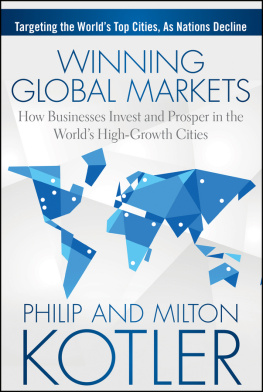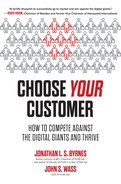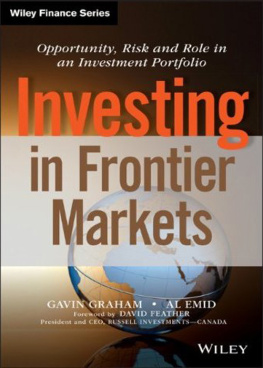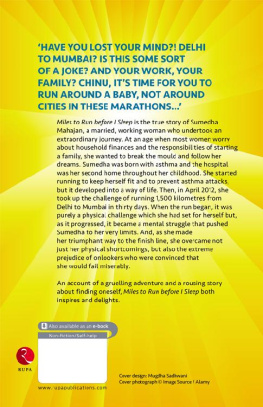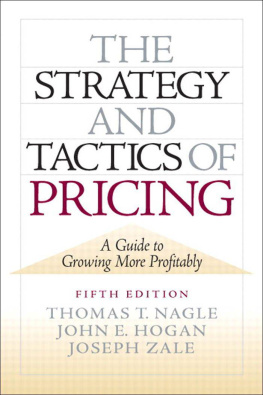The 86 Percent Solution
How to Succeed in the Biggest Market Opportunity of the Next 50 Years
Vijay Mahajan and Kamini Banga
with Robert Gunther
Library of Congress Number: 2005925782
Vice President, Editor-in-Chief: Tim Moore
Editor: Yoram (Jerry) Wind
Editorial Assistant: Susie Abraham
Development Editor: Russ Hall
Director of Marketing: John Pierce
International Marketing Manager: Tim Galligan
Cover Designer: Chuti Prasertsith
Project Editor: Michael Thurston
Managing Editor: Gina Kanouse
Copy Editor: Gayle Johnson
Indexer: Joy Dean Lee
Compositor: The Scan Group
Proofreader: Karen A. Gill
Manufacturing Buyer: Dan Uhrig
2006 by Pearson Education, Inc.
Publishing as Prentice Hall
Upper Saddle River, New Jersey 07458
Prentice Hall offers excellent discounts on this book when ordered in quantity for bulk purchases or special sales. For more information, please contact U.S. Corporate and Government Sales, 1-800-382-3419, .
Company and product names mentioned herein are the trademarks or registered trademarks of their respective owners.
All rights reserved. No part of this book may be reproduced, in any form or by any means, without permission in writing from the publisher.
Printed in the United States of America
First Printing
ISBN 0-13-248506-0
This product is printed digitally on demand. This book is the paperback version of an original hardcover book.
Pearson Education LTD.
Pearson Education Australia PTY, Limited.
Pearson Education Singapore, Pte. Ltd.
Pearson Education North Asia, Ltd.
Pearson Education Canada, Ltd.
Pearson Educatin de Mexico, S.A. de C.V.
Pearson EducationJapan
Pearson Education Malaysia, Pte. Ltd.
This book is dedicated to the consumers,
business executives, political leaders, thought
leaders, and government and nongovernment
organizations who are offering solutions
that make a difference to the developing
countriesthe 86 percent markets.
Praise for The 86 Percent Solution
"This book demonstrates that the dramatic differences of emerging markets create tremendous opportunities. The authors present powerful solutions for unlocking these opportunities. The 86 Percent Solution is a wake-up call for any company, consultant, or educational institution that has not given these markets sufficient attention in the past. And it can serve as a rich guidebook for those who want to understand and grow their businesses in the 86 percent world."
Rajat Gupta, senior partner worldwide, McKinsey & Company, and chairman of the board of the Indian School of Business, Hyderabad
" The 86 Percent Solution makes it abundantly clear that while emerging markets are the future, the path to this future will not be a smooth highway. Emerging nations advance in the balance between tradition and innovation. The solutions presented in this book are based upon a deep understanding of the complexities of these markets. The authors offer insights not only for companies engaged in these markets, but also for policymakers, NGOs, and worldwide organizations that want to understand the role that business can play in innovation and economic development."
Chandra Babu Naidu, former chief minister, Andhra Pradesh, India
"[ The 86 Percent Solution offers] a unique insight for those who need to understand what will be the key driver of the global economy in the first half of the twenty-first century."
Niall Fitzgerald, chairman of Reuters and former chairman of Unilever
About the Authors
Vijay Mahajan , former dean of the Indian School of Business, holds the John P. Harbin Centennial Chair in Business at McCombs School of Business, University of Texas at Austin. He has received numerous lifetime achievement awards including the American Marketing Association (AMA) Charles Coolidge Parlin Award for visionary leadership in scientific marketing. The AMA also instituted the Vijay Mahajan Award in 2000 for career contributions to marketing strategy.
Mahajan is author or editor of nine books. He is one of the world's most widely cited researchers in business and economics. He edited the Journal of Marketing Research , and has consulted with Fortune 500 companies and delivered executive development programs worldwide.
Kamini Banga is an independent marketing consultant and managing director of Dimensions Consultancy Pvt. Ltd. Her clients have included Cadbury, Philips, Johnson & Johnson, Coca-Cola, and many others. She has traveled extensively in Asia and Southeast Asia, conducting training programs on market research and consumer behavior. During a three-year stint in London, she worked with the Harris Research Center as a consultant on ethnic issues for companies including British Airways and the BBC.
Banga writes and edits business articles for Economic Times , The Smart Manager , Business Today , and other leading Indian business publications, and is a non-executive director on several company boards. She is a graduate of the Indian Institute of Management, the premier institute for MBA education in India. A former resident of Mumbai, India, she now lives in London.
Seeing Geeti
As she begins her day, Geeti is amazed at how much her world has changed. She works as a customer service representative on the campus of an outsourcing company in Hi-Tech City in Hyderabad. It looks and feels more like Silicon Valley than India. She has a cell phone, a Sony television, and a Dell computer with a high-speed Internet connection that links her to relatives, information, and markets around the globe. Her Haier refrigerator hums in her 1,000-square-foot apartment. So many new products from local and global companies have flooded into the market. She has just bought her first car, settling on a well-equipped model from Maruti, costing about US$3,000 (138,000 rupees), with only US$45 (2,000 rupees) down.
She realizes that her new car won't be gliding down the smooth highways shown in the Western television commercials. It will have to navigate crowded streets and rural highways jammed with bullock carts, bicycles, scooters, pedestrians, and beggars. And her electricity is often out several hours a day as she stares at her blank computer screen in the light of battery-operated lamps. She is looking into buying an inverter (an uninterruptible, battery-like power source).
Still, this life is a far cry from the simple, rural Indian village where she grew up. That village exists only in her memory now. The other day, her older sister, Laju, who still lives there, called from a cell phone operated by a telephone lady during the weekly haat, or market day. Hindi music from the latest Bollywood films was blaring in the background. Laju talked about the sachets of branded products crowded onto tables with traditional spices and clothing. She told how her husband, Shiv, and other rural farmers track grain prices on the Chicago Mercantile Exchange through a satellite Internet hub called e-Choupal. And she reported how her son, Anil, working in the Middle East with his wife, Sudha, deposits money in an account in Dubai that allows Laju to draw cash from an ICICI Bank mobile automatic teller in the village. Of course, Laju didn't miss this opportunity to ask her little sister again when she and her new husband are planning to have children. Geeti doesn't know how she will ever find the time.
Geeti's maid, Lakshmi, arrives on a bicycle driven by her husband, Ghelu Mohan. They are thinking about trading up to a scooter and have asked Geeti for a recommendation. She has had a good experience with Bajaj, the brand she owned before she bought her car. Geeti bought her maid a cell phone so that she could relay messages about schedules and dinner plans. The maid and her family live in a crowded one-room shanty with no indoor plumbing, but their life is changing as well.



